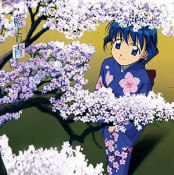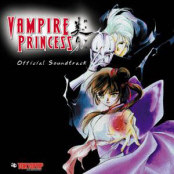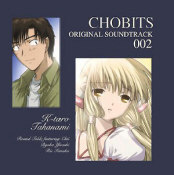Sound Decision
Around the World (Series)
by Jonathan Mays,
I was eager to proclaim the bliss of a Cubs/Red Sox World Series, and then reality dropped by to beat me over the head with a stick. But all isn't lost. Where historic rivalry escapes the Yanks/Fish series, a couple of compelling match-ups step in to fill the gap:
Win-or-Else Steinbrenner vs. Sell-Out Loria
Yankees owner George Steinbrenner may be one of the more arrogant, bombastic, and illogical members of the human race, but at least New York doesn't have to worry about him abandoning his team on a moment's notice. Though he lacks the notoriety of Steinbrenner, Marlins owner Jeffrey Loria is equally detestable. In February of 2002, Loria retracted his promise to build a stadium and a fanbase for the city of Montreal. He chose instead to sell off the team, buy one in Florida, and strip the Expos of everything from the coaching staff to the life-size cardboard figures of Expos star Vladimir Guerrero in the team clubhouse. He's pulled other Steinbrenneresque moves, too, like firing a manager a week after Loria publicly promised his job was safe.
Advantage: Steinbrenner. A jerk—but a loyal one.
Yankee Stadium vs. Pro Player Stadium
As you traverse the stands in the upper deck of the Marlins' home field, it's hard not to notice the Dolphins logos engraved on the end of each row of seats. Or the massive sea of orange. Or that half of the seats don't even face home plate. One must admit, however, that it's pretty cool to see seventy thousand people packed in to see a game, and the field itself happens to be one of the best in the major leagues. Then there's Yankee Stadium, which possesses a unique quality of its own. Some describe it as an aura. Maybe it's the spirit of Babe Ruth emanating from Monument Park. But it might just be the stench of garbage coming from the left field stands.
Advantage: Yankee Stadium. History over 70,000 white towels.
Looks like it'll be a Yankees sweep. Of course, there's always the actual baseball aspect of the series, and Florida accumulated baseball's best win-loss record over the last four months. On second thought, I'll take the Marlins in six.
I was hoping to review the new Mahoromatic soundtrack this time, but when I put it in my computer, I discovered all the tracks were from the first Mahoro CD. I guess that's why they were recalled, eh? I guess it'll be another few weeks before I can check that one out. See ya then.
Win-or-Else Steinbrenner vs. Sell-Out Loria
Yankees owner George Steinbrenner may be one of the more arrogant, bombastic, and illogical members of the human race, but at least New York doesn't have to worry about him abandoning his team on a moment's notice. Though he lacks the notoriety of Steinbrenner, Marlins owner Jeffrey Loria is equally detestable. In February of 2002, Loria retracted his promise to build a stadium and a fanbase for the city of Montreal. He chose instead to sell off the team, buy one in Florida, and strip the Expos of everything from the coaching staff to the life-size cardboard figures of Expos star Vladimir Guerrero in the team clubhouse. He's pulled other Steinbrenneresque moves, too, like firing a manager a week after Loria publicly promised his job was safe.
Advantage: Steinbrenner. A jerk—but a loyal one.
Yankee Stadium vs. Pro Player Stadium
As you traverse the stands in the upper deck of the Marlins' home field, it's hard not to notice the Dolphins logos engraved on the end of each row of seats. Or the massive sea of orange. Or that half of the seats don't even face home plate. One must admit, however, that it's pretty cool to see seventy thousand people packed in to see a game, and the field itself happens to be one of the best in the major leagues. Then there's Yankee Stadium, which possesses a unique quality of its own. Some describe it as an aura. Maybe it's the spirit of Babe Ruth emanating from Monument Park. But it might just be the stench of garbage coming from the left field stands.
Advantage: Yankee Stadium. History over 70,000 white towels.
Looks like it'll be a Yankees sweep. Of course, there's always the actual baseball aspect of the series, and Florida accumulated baseball's best win-loss record over the last four months. On second thought, I'll take the Marlins in six.
|
Ai Yori Aoshi: Sakura —Pioneer  Much like the music of Mahoromatic, Ai Yori Aoshi's pieces showcase the power of simplicity. A single slow-paced melodic line and a steady bass part are all composer Toshio Masuda offers most of the time, leaving the listener with a very peaceful collection of music. If you like quiet instrumentals with dilatory themes that let you hang onto a single cello note for an eternity, Ai Yori Aoshi is right up your alley. Much like the music of Mahoromatic, Ai Yori Aoshi's pieces showcase the power of simplicity. A single slow-paced melodic line and a steady bass part are all composer Toshio Masuda offers most of the time, leaving the listener with a very peaceful collection of music. If you like quiet instrumentals with dilatory themes that let you hang onto a single cello note for an eternity, Ai Yori Aoshi is right up your alley.The TV cut of Yoko Ishida's opening theme, an exceptional spirit-lifting vocal piece, anchors this collection. Ishida's radiant voice is a sharp contrast from the color of the melancholy instrumentals, so it's a nice injection of playfulness before the descent into the pensive mood that follows. The rest of the disc's thirty-six tracks are better suited as atmospheric music, as their brief, circular themes are more effective at setting a mood than drawing one's interest. "Parting," which begins with a hesitant piano before launching into an entrancing cello/viola harmony that eventually opens a beautiful cello solo, is an exception to the rule. So is "Fate," a sorrowful piece drawn from the same expressive roots as Mahoromatic's "Last Wish." The simple purity of Ai Yori Aoshi's music is its greatest strength, but it also contributes to the soundtrack's weakest aspect, a sore lack of variety. One can only take so many quiet, meditative pieces in a row before yearning for something with more energy. You probably won't make it through more than half of the soundtrack in one sitting because after a while, the calming sensation of the music yields to mere boredom. Towards the end, Masuda tries to spice things up with a couple of all-too-generic dance-like pieces, and he even makes a venture into the smooth jazz arena, but it's clearly not his strength. In the end, the meditative overkill is just fine. If you're looking for something mellow and calming to help you unwind from the day, you can't go wrong with this one. Best used as: Kare Kano primer. |
|
Vampire Princess Miyu —Tokyopop (2001-07-31)  Kenji Kawai, master of suspense, displays the full range of his talents in the Vampire Princess Miyu soundtrack. Here lie perhaps his best 73 minutes of anime music, a wonderfully diverse assembly of Japanese folk-inspired tunes that combine the vocal and instrumental precision of his Ghost in the Shell with Patlabor's trepidation. Those two had a couple of missteps, but Miyu's the full package. Kenji Kawai, master of suspense, displays the full range of his talents in the Vampire Princess Miyu soundtrack. Here lie perhaps his best 73 minutes of anime music, a wonderfully diverse assembly of Japanese folk-inspired tunes that combine the vocal and instrumental precision of his Ghost in the Shell with Patlabor's trepidation. Those two had a couple of missteps, but Miyu's the full package.A story of a thirteen-year-old trapped between the human and demon worlds is decidedly somber and melancholic. Fittingly, the soundtrack leans towards a darker, horror-laced tone. Kawai starts with a solid foundation of Japanese folk music, but he's not content simply to establish a haunting mood. He extends the boundaries of folk music to include sounds like the bass-heavy synthesizer that fleshes out the opening theme. String music is common as well, but it's almost entirely quiet and hesitant, driven by a single lonely melody line. This isn't your typical "classical" music by any stretch of the imagination. A trio of vocal pieces toes the "generic pop" line before firmly establishing themselves in the edgy, slightly uncomfortable discord of Miyu. In the case of "I Wanna Meet You," it takes only one interval to shift the entire mood in a darker direction. The only truly disappointing aspect of this soundtrack is the instrument choice for the battle themes. Drum/synth/keyboard mixes evoke a feeling more of video game music than the foreboding mood he wants. When everything else is so ominous, the jump to that style has an unpleasantly jarring effect. But you'll have forgotten the feeling by the following track, when Kawai settles back into the wistful state in which he excels. If you like minor keys and unresolved tension, Miyu is sure to satisfy. Best used as: Early Halloween scare. |
|
Chobits Original Soundtrack 002 —Pioneer  Superficiality reigns supreme in the musical world of Chobits. All the components are here: the capable vocals, the elegant instrumentals, and a shot of silliness, but it rarely makes that leap into the realm of believable emotion. Instead, composer K-taro Takanami settles for a bland, manufactured series of faux feelings that waver between ineffective and downright annoying. Maybe it's because the pieces are too symmetrical or the performances too stilted, but whatever the reason, most of Chobits' music simply doesn't "work." Superficiality reigns supreme in the musical world of Chobits. All the components are here: the capable vocals, the elegant instrumentals, and a shot of silliness, but it rarely makes that leap into the realm of believable emotion. Instead, composer K-taro Takanami settles for a bland, manufactured series of faux feelings that waver between ineffective and downright annoying. Maybe it's because the pieces are too symmetrical or the performances too stilted, but whatever the reason, most of Chobits' music simply doesn't "work."The opening is cute, catchy, and entirely too repetitive. As grating as this pseudo-70s tune may be, you'll probably catch yourself humming, "Let me be with you" long after listening. The rest... uh, I swear I've heard some of this music before in those goofy old department store commercials with the bothersome string plucking and silly bass parts. It would be a perfect fit for the next Old Navy ad campaign. I'm not sure how anyone could enjoy a chorus of "do do do" or "ba ba ba" or, worse of all, "shabadada daaabaaa" over and over. It's supposed to be all cute and sweet, but it'll probably drive you up the wall. There is one standout piece, however. "That Was Then" is beautiful, capably developed, and evocative. Building and falling effortlessly, it's an upper-tier romantic piece with an enormous dynamic range and just enough dissonance to keep the distressed tone in the front of your mind. As in Haibane Renmei, the composer knocks the piece up a notch simply by moving the melody across different instruments. "Touchy Subject" is a decent piano solo, too, but everybody has a dramatic, heart-wrenching, tear-jerking piano solo, and this one doesn't do much to distinguish itself. Mediocre quality aside, this soundtrack would've been a lot better with some sort of music guide—or at least translations of the dialogues that open some of the tracks. As it is, unless you've seen the show and memorized all the important parts, the voice inflections of Chii and Hideki are the only clues you get about what they're saying. Is it worth spending fifteen bucks on this thing? Tough call, but with an addictive opening theme and a compelling piece like "That Was Then," I think it's worth a listen. Best used as: Artificial sugar alternative. |
I was hoping to review the new Mahoromatic soundtrack this time, but when I put it in my computer, I discovered all the tracks were from the first Mahoro CD. I guess that's why they were recalled, eh? I guess it'll be another few weeks before I can check that one out. See ya then.